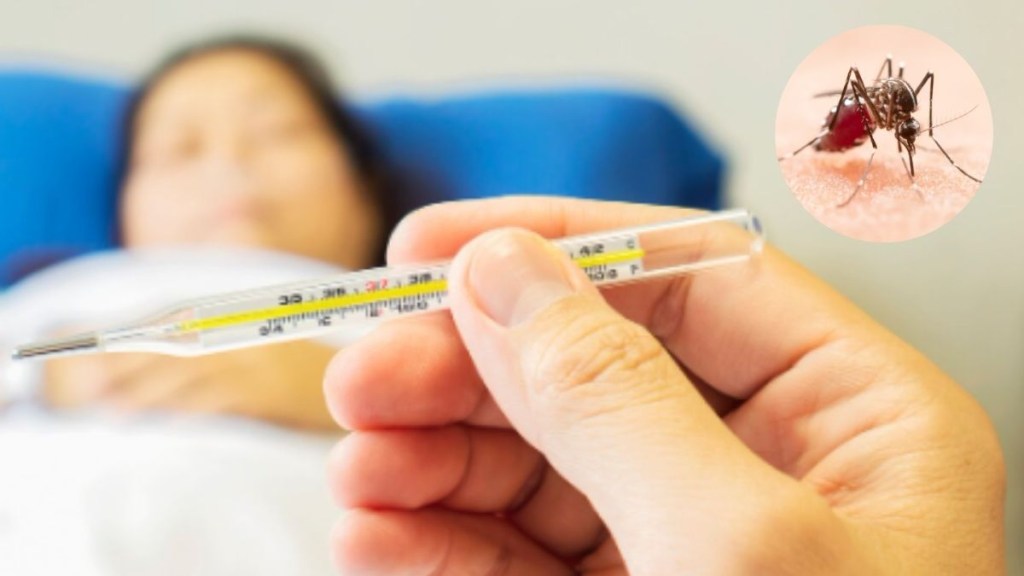With heavy rains hitting several Indian cities, there has been a sharp rise in dengue cases across the country. Delhi has reported 143 cases so far, as per the Delhi Health Department, while Mumbai has recorded 1,160 cases from January to July, according to the Municipal Corporation of Greater Mumbai (MCGM). Meanwhile, Bengaluru has seen 1,685 cases, as reported by the Karnataka Health Department, and Hyderabad reported 433 cases between April and June, according to the Telangana Health Department. The World Health Organization (WHO) estimates that around 390 million people are infected with dengue annually, with approximately 96 million showing symptoms.
Severe dengue can lead to complications such as dengue hemorrhagic fever or dengue shock syndrome, which can be life-threatening. Low platelet count (thrombocytopenia) is a major sign of the disease, causing fatigue, bruising, and increased bleeding risk.
So what should you add to your diet to keep platelet count in check? We got in touch with an expert who shares simple foods, seeds, and drinks that can help you recover faster.
Foods that can help boost platelet count during dengue
While treatment is essential, what you eat plays a major role in recovery. Pratiksha Kadam, Chief Dietitian at Kokilaben Dhirubhai Ambani Hospital, says a nutrient-rich diet can help restore platelet levels and strengthen immunity. She recommends adding the following foods, seeds and drinks to your diet:
- Pomegranate: Kadam advises to add pomegranate to your diet as it is rich in iron, vitamin C, and antioxidants. Hence, it can help fight fatigue and boost immunity.
- Pumpkin and Pumpkin Seeds: Pumpkin has vitamin A to support platelet production, while the seeds provide zinc and antioxidants for overall immune health.
- Leafy Greens: Spinach, kale, and fenugreek leaves are rich in vitamin K, which helps with blood clotting and keeping platelets healthy.
- Citrus Fruits: Oranges, lemons, and kiwis help the body absorb iron and keep blood vessels strong.
- Beetroot and carrot juice: Kadam explains that beetroot and carrots are full of iron, folate, and antioxidants. Adding this to your diet can support the regeneration of red blood cells and platelets.
- Coconut water: Keeps you hydrated and restores essential electrolytes lost during fever.
- Protein-rich foods: Eggs, lean chicken, fish, lentils, tofu, and paneer help repair tissues and strengthen the immune system.
Kadam advises, “Eating small, frequent meals and staying hydrated with water, soups, or fresh juices helps maintain energy levels. Avoid oily, spicy, and processed foods, which can strain digestion.” She adds that while no single food cures dengue, having a balanced diet while taking proper rest can help in speedy recovery.
Dengue symptoms to watch out for
Dengue spreads when an infected Aedes mosquito bites a person, causing fever, joint pain, and low platelets. Cases usually rise during the monsoon, as stagnant water provides ideal breeding grounds. Experts warn that with ongoing rains, the situation could worsen in the coming weeks. Common symptoms include high fever, severe headache, pain behind the eyes, joint and muscle pain, rash, and mild bleeding.
CDC tips to shield yourself dengue mosquitoes
Preventing mosquito bites remains the first step in keeping yourself safe from dengue. The Centers for Disease Control and Prevention (CDC) recommends removing stagnant water around homes, using mosquito repellents, and wearing protective clothing. Anyone showing symptoms of dengue should immediately visit a doctor to avoid any complications.
